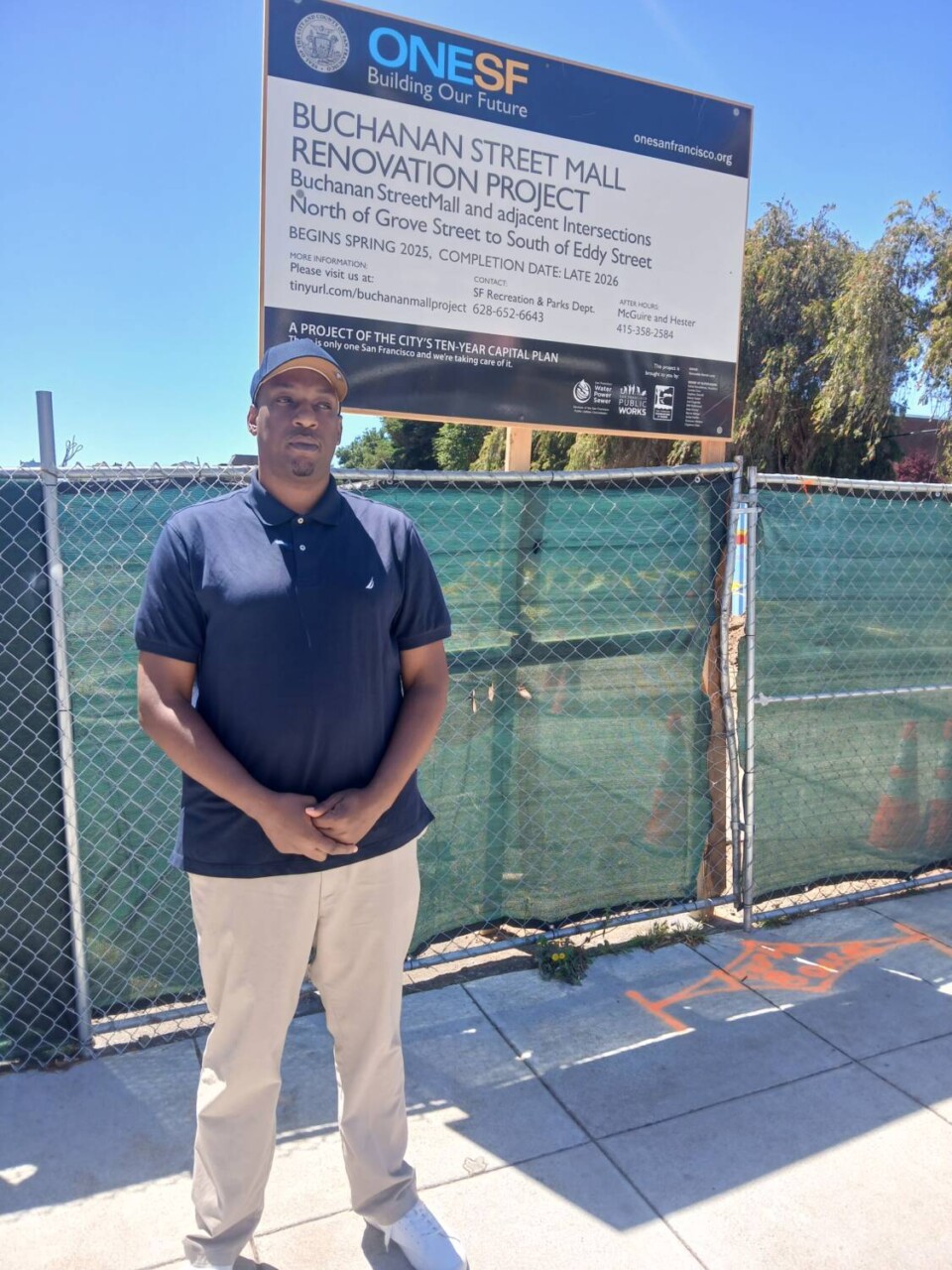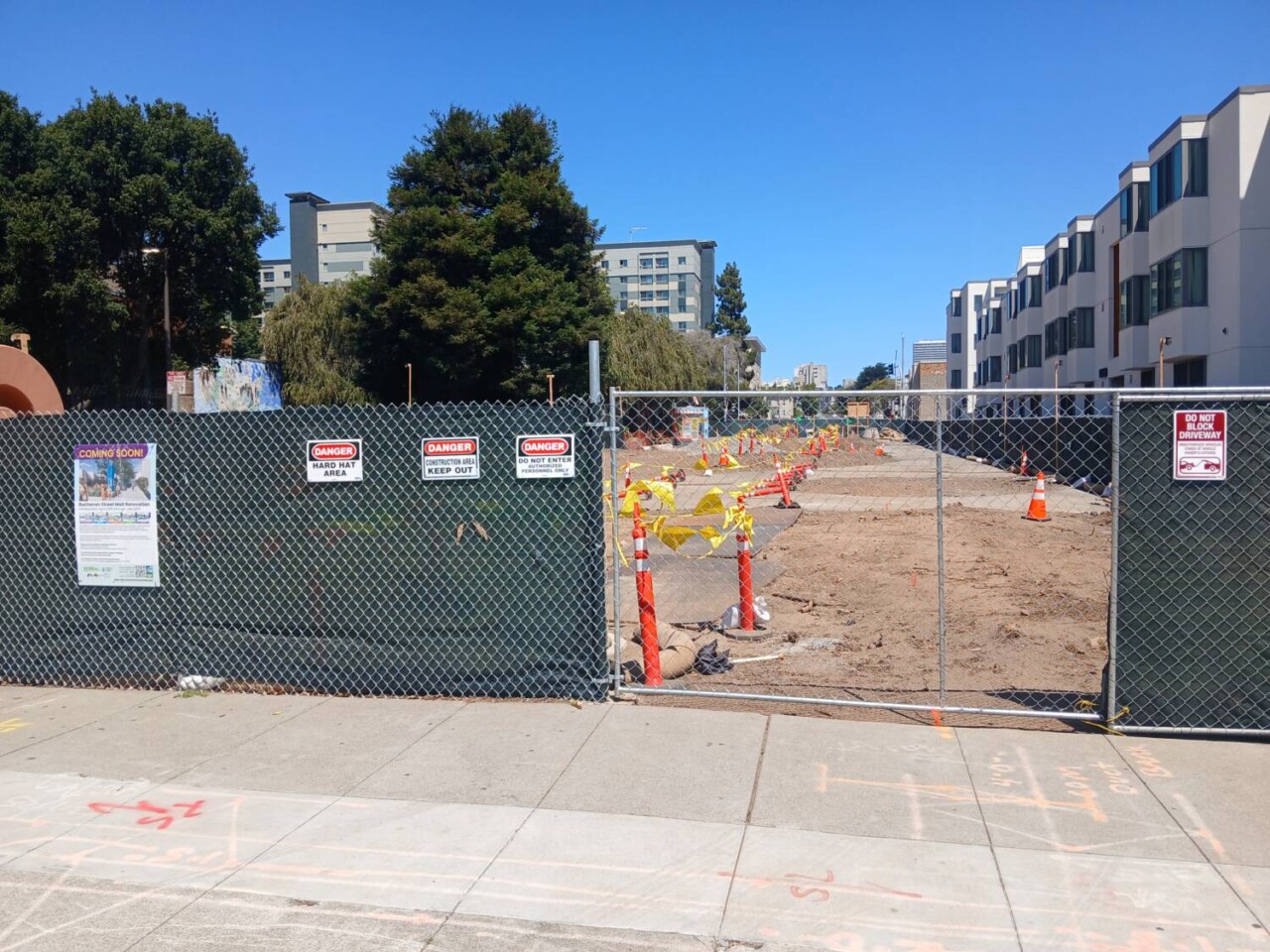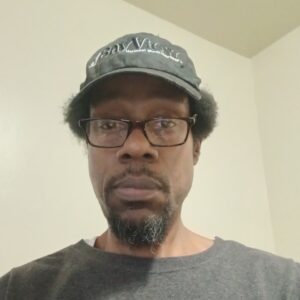
by Tabari Morris
The Buchanan Street Mall Renovation Project in San Francisco’s Fillmore neighborhood served as a stage for a protest that shut down the project, reflecting the decades-long dilemma that San Francisco has faced uniting equity, Black labor and economic empowerment. The renovation project today is a point of contention, where erased histories and demands for meaningful inclusion intersect and where longstanding activists, contractors and community activists point to both the profound exclusion and hard-won lessons that continue to inform calls for self-sufficiency and economic growth.
Historic exclusion and economic struggles
Oscar James, a lifelong Bayview Hunters Point resident, traced the legacy of exclusion from skilled labor and contracting work back generations. He remembered, “My father was one of the ones who put that crane together in the Hunters Point Shipyard back in 1948, but he was denied using his skills in trades, ended up doing more janitorial, that type of work,” James recounted, connecting the story to persistent economic challenges facing local Black communities.
James described how economic opportunity — when circulated within Black communities — could be transformative. “When I was doing community politics, I started a trucking company. My company did the first hole at the Moscone Center. We had a major contract for that. I hired the Blacks first, then I had white boys to fill in.”
He warned, “If they divide us, they win! We ourselves, we pull ourselves together for strength in numbers, and they use that against us.”

Barriers for Black contractors and local hiring
At a Black contractors meeting, President Demetrius Williams and colleagues explained that the current promises of inclusion have not translated into real contracts or job opportunities for neighborhood residents: “Not one of us has even had a dialogue. That’s the reason why [developer] Kathy Davis is coming back — because I want to make her understand that before we shut your project down, we’re all on the same page. Now where is the inclusion? Because you signed this document requiring 23% [local Black/disadvantaged] contractor inclusion, yet we don’t have one contract signed by a community contractor.”
Longtime contractor Oscar James stressed: “If you don’t have the contractors in there, who’s going to hire us? Who’s going to hire the young people? Who’s going to train the young people? We’re begging if we don’t have our own contractors on the job.”
The legacy of Black contractors building quality housing and community assets not only offered jobs, but higher construction standards. Oscar James continued: “The ones where we had Black contractors, a lot of those buildings have grade A materials in there. If you don’t have your people in there as contractors, they bring anybody they want in. It’s up to the community. If they know you’re together, they’re going to give you what you want.”
The protest at the Buchanan Street Mall project served as a rare and urgent moment of cross-district solidarity. “It was DC Development — Dennis Williams’ nonprofit in the Western Addition — as well as ABU, From the Heart, and community from both sides – Western Addition-Fillmore and BayviewHunters Point,” explained community leader Maika Pinkston. “We all came together. That’s what happened – just peaceful, peaceful protests and basically just explaining the reasoning for the shutdown.”
Pinkston summed up why frustrations flared: “We as a community, as a Black community, to be specific, we were not included; we were excluded. And not only were we excluded, but it appears that it was some organizations put into place to make it appear as if they were going to hire us. And we weren’t a part. That isn’t what happened.”
Pinkston also reflected on generational shifts in activism and community organizing: “My generation – I’m 45 – in my generation we did not have this because we had the elders here who took care of everything. Now that we are here, I am going to say this: We are learning as leaders, as advocates, because this was not taught to us.”
She continued: “It’s unfortunate that this is not in the history books; this is not being taught in the schools. History has been wiped away, and they’re continuing to try to wipe the history away. The more they wipe away, the more work we have to do in the future because there’s no documentation that shows what’s in place, and that’s what we’re experiencing right now.”
Passing the torch and demanding accountability
Elders encouraged the contractors, “Legacy is not what I’m going to do,” said Oscar James. “The only thing I’m going to do is share some wisdom and knowledge so you can eliminate obstacles. When you’re talking about a percentage, it’s not a percentage for Blacks; it’s a percentage of minorities. So you got to be careful of that. That’s the reason why we got to be organized when we stand up for our community, but we need to stand up in a way that they haven’t seen us stand up.”
Contractors and organizers insisted that both economic and cultural gains are at stake. The act of standing together — across districts and generations — is itself a critical victory. Pinkston added: “As we come together, if we don’t make sure that these things are documented and that they can never be erased, then we’re going to be fighting every 25 years.”
She continued, “What I’m saying is we need to be smarter than what we are because right now we are being hoodwinked. And we must understand that it is work to do. It’s work to do.”
In this case, the Buchanan Street Mall project is not simply a city or economic issue; it is an issue of whether San Francisco will embrace real equity, memory and reinvestment or persist in exclusionary politics and erasures.
This time San Francisco must implement the agreements with sanctions to bring not just change, but to enforce compliance too, and to drop the cloak of the illusion of inclusion.

Tabari Morris, currently pursuing a journalism major at City College of San Francisco, is also undertaking an internship at SF Bay View National Black Newspaper and can be reached at Tabari@sfbayview.com.




